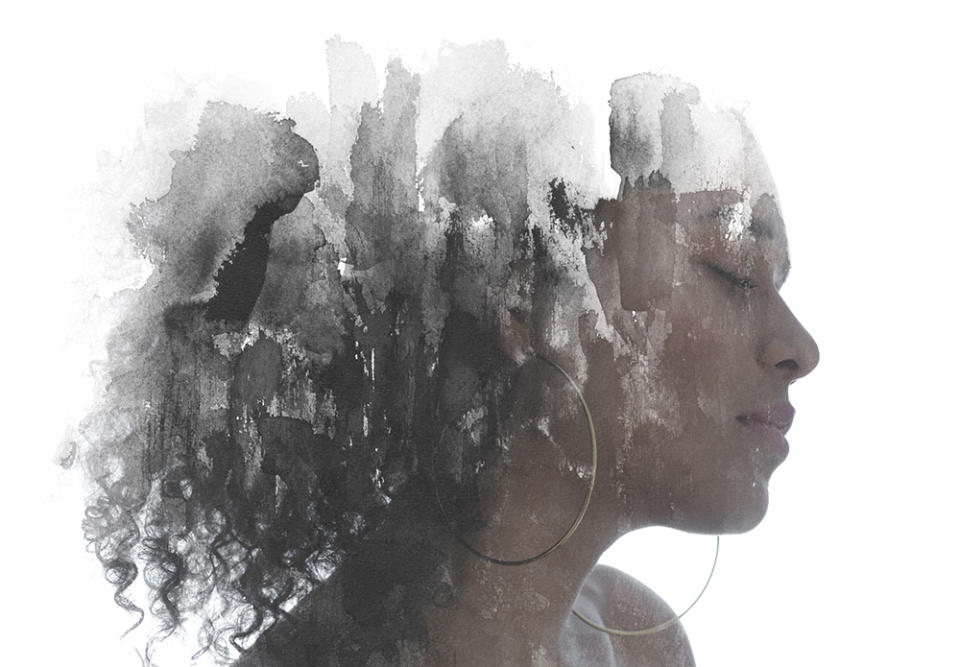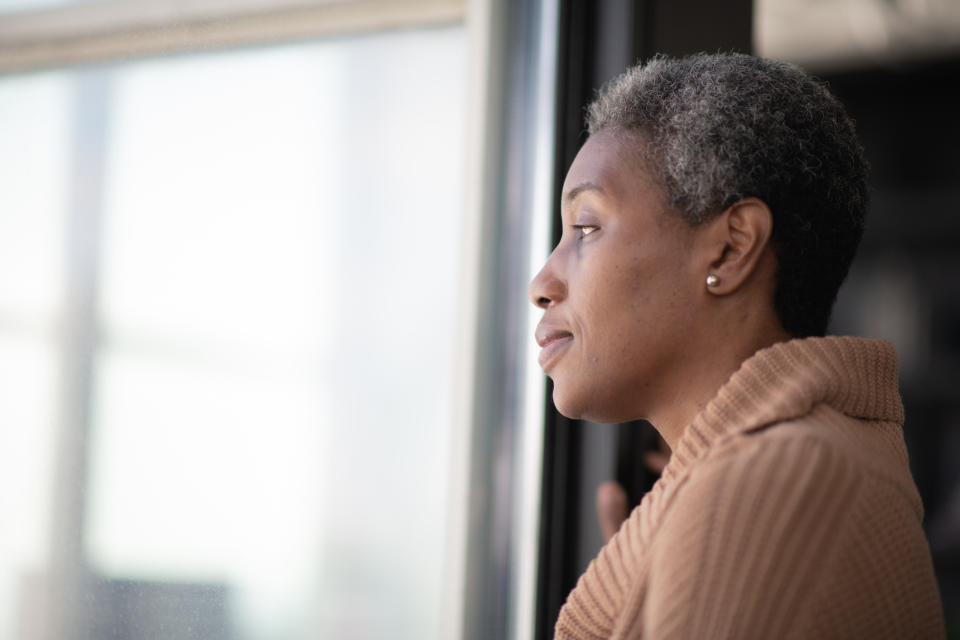17 resources and organizations that support BIPOC mental health
Looking for more news on health and wellness? Sign up for Yahoo Lifestyle Canada’s newsletter!

Content Warning: The following article deals with themes of self harm, suicide and suicidal ideation, which may be disturbing for some readers.
When you think about mental health, what comes to mind? Perhaps you think about mental health services like therapy or counselling. You might think about yourself or someone else that is directly affected by a mental illness. However you think about it, it’s salient to understand exactly what mental health and mental illnesses are.
According to an article published to Medical News Today, mental health is an umbrella term for cognitive, behavioural and emotional well being. By comparison, the National Alliance on Mental Health defines mental illness as a condition that affects a person's thinking, feeling or mood which can impair or impact a person’s ability to relate to others and function each day. These definitions are only the beginning when it comes to learning and understanding the complexities that surround mental health such as the associated stigmas, resources and barriers to treatment, which disproportionately affect minorities at higher rates compared to their white counterparts.

In 2008, Mental Health America designated July as BIPOC Mental Health Awareness Month in an effort to break the stigma associated with mental health within minority communities. However, there is a lot of work to be done in order to shift the narrative surrounding mental health within BIPOC communities - and it will take a lot more than just one month a year to do so.
The first step in helping to raise mental health awareness within minorities is to acknowledge mental illness within minority communities, and the ways in which they impact BIPOC. According to licensed psychotherapist, Nicole Lewis who operates Legacy Wellness Services in Gulfport, Miss., post-traumatic stress disorder (PTSD) is a common mental health issue that impacts minorities. These traumatic events can refer to dangerous events, real or perceived experiences of discrimination (such as shaming), witnessing the discrimination of minorities as well as threats of or instances of physical harm. What makes this kind of trauma among minorities is the ongoing exposure to these types of events. In addition to experiencing the effects of the trauma, minorities are also dealing with issues of anxiety and depression at alarming rates.

Research shows that 1 in 5 adults in the United States and Canada experience some form of mental illness a year, with only half of those receiving the help they need. When it comes to receiving care, there are a myriad of encumbrances that obstruct accessibility and treatment.
“Minorities face multiple barriers when seeking mental health services including cultural differences, mistrust of authorities due to experimentation and discrimination, disparities in access to care, and logistical barriers such as transportation issues or inability to take time off work,” Lewis explained in an interview with Yahoo Canada.
Another common barrier to services is affordability. While some health insurance plans cover mental health services, it’s often unavailable to entry level, part time and contract employees. With the average therapy session costing upwards of $250 this is often not financially feasible for marginalized communities.
We often think of mental health services as exclusively individual therapy and counselling. However, outside of these traditional approaches, mental health services include support groups, twelve-step programs, prevention hotlines, psychiatric medication as well as community and peer support services.

Mental Health Advocate, Jackie Dohna said that while therapy is great, it’s not the only proactive tool in prioritizing mental health.
“I am a very strong advocate for finding ways that personally help you to express yourself. This can be dancing, reading, or talking to a friend,” Dohna said. “Building your own support group can be helpful as well.” She also suggests journaling as a way to write out your thoughts, feelings and goals as well as meditation.
The average time between symptom onset and receiving treatment is eleven years. Mental health treatment, whether it’s self-care, medication or therapy, has made recovery possible for those who experience mental illness. Although taking those first steps towards recovery can be unnerving, with modifications and the integration of technology, there are numerous resources and potential recovery at our fingertips.
Whether you’re looking for therapy or just want ways to decompress and amp up the self-care, we’ve compiled this list of tips and resources at every price point to help you take control of your mental health.
Explore mental health awareness on social media
One of the first steps people can take in being proactive in their mental health is to diversify their social media feeds. With the uptick in down time due to coronavirus, people are spending more time on social media than normal. The videos, images and information one ingests can impact mental health positively or negatively. Following pages such as Positively Present that promote positivity can be an excellent source of motivation, inspiration and joy.
Utilize crisis counselling
Crisis text lines offer 24/7 support by connecting you to a trained crisis counsellor. In Canada, contact the Crisis Text Line by texting TALK to 686868. In the United States, connect with the Crisis Text Line serves texting 741741.
Download meditation and mindfulness apps
Meditate with Headspace. This app offers guided meditation and mindful thinking practices. Plans range from $6 USD a month with a yearly subscription or $13 USD per month if you opt for a month to month subscription, both offering a free trial first. There are also student and family plans available. Currently, Headspace is free for one year for those who are unemployed.
Take your mediations one step further with the Calm app that also offers masterclasses, music to promote restful sleep and mindful movements and stretching. While they do offer some helpful free resources, in order to have full access to the content available, a one year subscription priced at $70 USD is required.
Resources for BIPOC
The Yellow Couch Collective is an extension of Therapy For Black Girls that offers support, personal development and encouragement with the ease of a group chat. New members can get a one week free trial with plans starting at $10 USD a month.
Ethel’s Club is a celebratory digital community for people of colour promoting healing, creativity and energy that nourishes the mind, body and soul. Within this connection space, users can join book or design clubs and enjoy content that amplifies the voices of marginalized people. Start for free or join for $17 USD a month.
Tips for locating affordable care
If you are seeking therapy and counselling services, but worried about the cost, these nonprofits and services are available to help offset the financial responsibilities of services.
Students in need of clinical hours in order to graduate can provide free or low cost services under the supervision of a licensed professional/professor. This varies by institution, so be sure to check with your local college or university.
Local health departments may be able to provide free or sliding scale (income based) mental health services directly at their offices or through a referral program with their network of providers.
Black Youth Helpline provides guidance, support and resources for Black youth and their families across Canada.
The Boris L.Henson Foundation, created by actress Taraji P. Henson, in honour of her father, offers five free teletherapy services for anyone directly impacted by the effects of Covid-19 and recent social injustices. Applicants can search a wide network of licensed providers in their state. They also have a resource guide of therapists and programs that serve the African American community.
The Trevor Project offers mental health resources for Black LGBTQIA youth through their phone, chat and text crisis services.
The National Association of Friendship Centres offers support to Indigenous communities across Canada by providing culturally enhanced programs through their more than 100 Friendship Centres.
In a collaborative effort with other organizations, The Loveland Foundation has created a therapy fund to provide four to eight sessions to black women and girls.
To Write Love On Her Arms is a nonprofit movement dedicated to presenting hope and finding help for people struggling with depression, addiction, self-injury, and suicide. They offer a treatment and recovery scholarship for eligible applicants based on their financial need and funding.
Therapy for Queer People of Color connects BIPOC members of the LGBTQIA community with a trained mental health professional to address issues of identity, trauma and oppression.
Dear Black Women offers an intentional safe space for Black women that encourages self-expression, growth and connection with mental health professionals and crisis counselling.
The Mental Health Fund offered by the National Queer and Trans Therapist of Color Network, offers financial support for up to six sessions with a psychotherapist up to $100 per session.
Mental health is not a liner journey, and looks different for everyone. No matter what approach you choose to take to be proactive in your mental health, support is pivotal in achieving your goals.
“The support of friends and family is a large part of helping someone who is experiencing mental health problems. Support can be provided by encouraging a loved one to seek mental health services,” Lewis said. “Friends and family are able to attend appointments and offer insight on symptoms their loved one has been experiencing. Friends and family can also provide emotional support by being understanding and patient.”
Happy Healing.
If you are struggling and in need of support, contact the Crises Services Canada by phone at 1.833.456.4566 or text 45645.
Let us know what you think by commenting below and tweeting @YahooStyleCA! Follow us on Twitter and Instagram and sign up for our newsletter.


